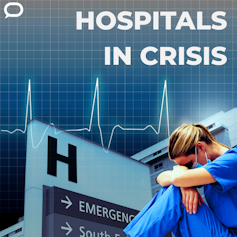
Seeing a private specialist increasingly comes with massive gap payments. On average, out-of-pocket fees to see a specialist amount to about $300 a year. But many spend hundreds on each appointment.
Costs quickly add up, especially if you need surgery or other treatments in hospital. Many patients are left struggling to pay.
Others rely on the public hospital system, where care is free but outpatient clinic wait times to see a specialist can be up to six years.
It’s not just wealthy Australians who see private specialists. And you don’t need private health insurance for an outpatient consultation in a specialist’s private rooms. For some regions and specialties, seeing a private specialist is the default, or only, option.
Health Minister Mark Butler has vowed to make specialist fees more affordable in his second term of government. So what exactly is the problem? And how can it be fixed?
Allowing specialists to set their own fees isn’t working
Unlike in other comparable nations, the government doesn’t regulate how much specialists can charge in Australia. Specialists set their own fees.
But relying on the free market fails because of two fundamental flaws:
1) Market power
Specialists are a scarce resource. For example, there are currently only around 130 doctors currently undergoing specialist training to become a dermatologist.
These high barriers to entry and geographic monopolies – where one specialist practice dominates a region – allow them to charge higher prices without competition.
The annual income of some specialists reflects this market power. The average taxable income of specialist surgeons is about $500,000.
This forces public hospitals to pay high salaries to retain surgeons, whose private-sector earnings are much higher.
2) Information asymmetry
Consumers lack the medical knowledge to assess quality. Patients often assume higher prices indicate better care.
In reality, specialist fees aren’t correlated with quality of care. Experienced, older specialists often charge less than younger, less experienced ones.




















